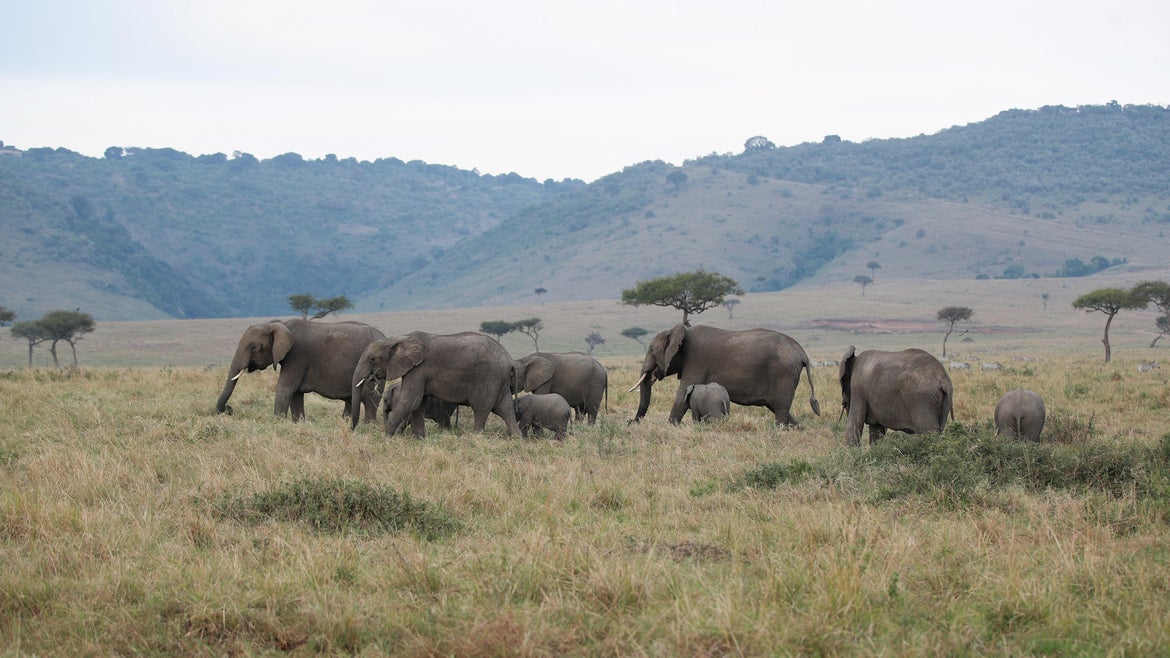Adopters will not be able to take their baby elephant home, wildlife officials clarified.
Animal shelters saw a huge influx of cats and dogs adopted into loving homes while many Americans began working from home amid the coronavirus pandemic, but for those who didn’t jump in on that trend, perhaps adopting a baby elephant might be something to consider.
Kenya’s tourism agency, Magical Kenya, and the Kenyan Wildlife Services are partnering up to host an elephant adoption and naming ceremony on Oct. 9 in Amboseli National Park, all in honor of what wildlife officials are calling an elephant baby boom, with more than 200 elephants born in 2020.
“The goal of the festival is to secure a future for elephants and their habitats in peaceful coexistence with humans," a statement from the organizers read.
Individuals are invited to adopt an elephant with a starting donation of 1,000 KSh, or about $9 USD, and corporations are invited to adopt with a starting donation of 50,000 KSh, or about $450 USD.
The starting donation to be able to name an elephant starts at 500,000 KSh, or about $4,500 USD. The African Wildlife Foundation (AWF) was the first to adopt one of the newborn elephants with a $5,000 donation.
Wildlife officials however clarified that the adoption of the elephants is symbolic, and while adopters won’t be allowed to go home with a baby elephant, they will get regular updates informing them of how the elephant is doing.
The adoption and naming ceremony, wildlife authorities explained, is all in an effort to raise awareness to the many threats against Kenya’s elephant population, including but not limited to ivory poaching, disappearing habitats and climate change.
The COVID-19 pandemic has also worsened conditions for elephants, a statement said, as less money ended up going toward conservation efforts.
But the one gift of COVID, Hon. Najib Balala, the cabinet secretary for Tourism and Wildlife, said in a statement, was the opportunity to increase the elephant population locally.
Wildlife officials had discovered at least 200 baby elephants born during 2020, which accounts for a 12% increase in the overall population.
They discovered this over a two-month-long census of the land conducted during the pandemic, during which they noted which rare and threatened species may need more monitoring.
Giraffes also saw a massive population growth in 2020, with more than 34,240, representing an increase of 49%, counted in their latest census.







